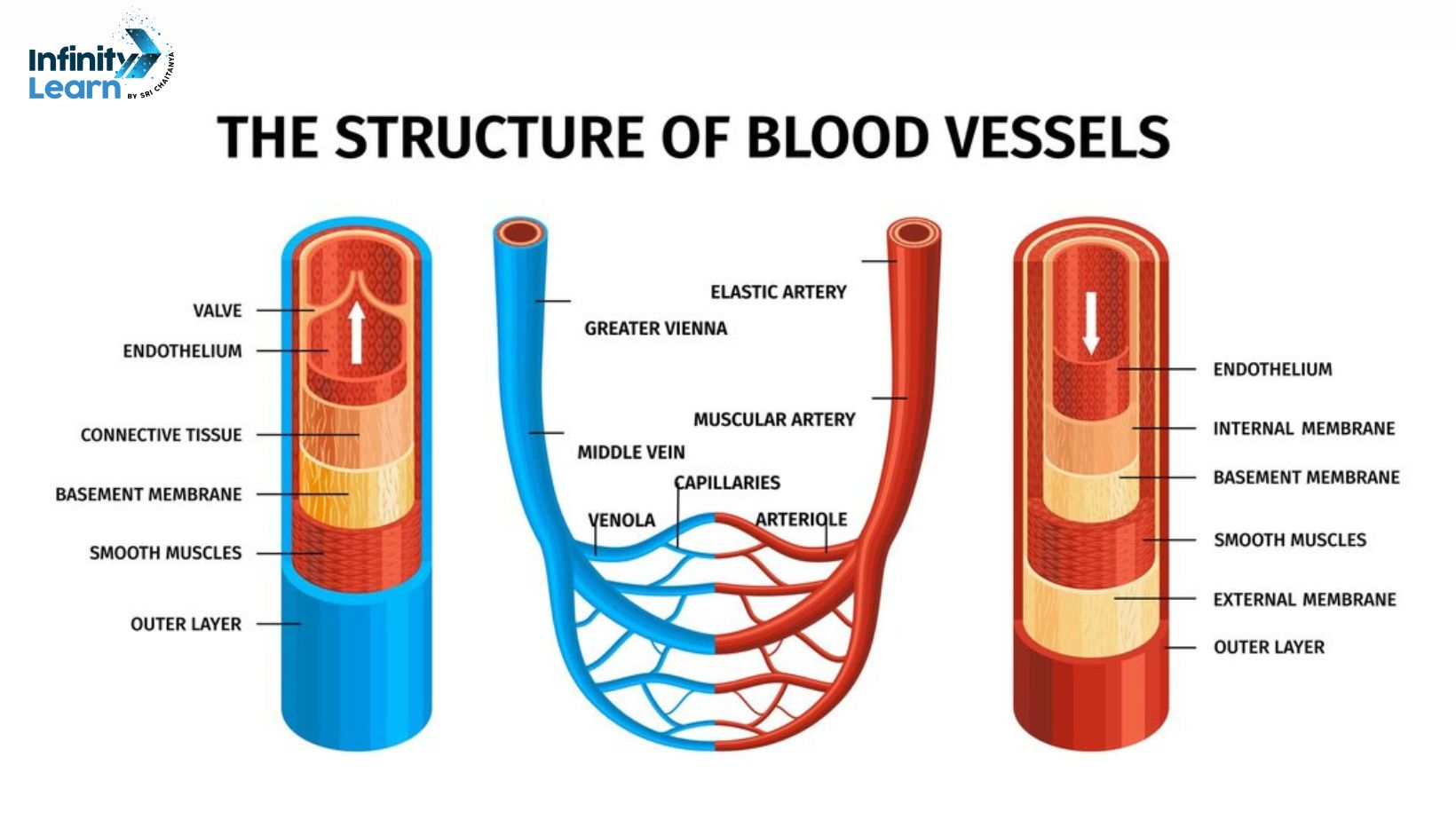Table of Contents
Blood vessels are like pipes in our body. They carry blood to and from different parts. Some carry blood away from the heart, and others bring it back to the heart.
What are Blood vessels?
Blood vessels are like tiny tubes that carry blood all around your body. They make a complete loop, starting and finishing at your heart. Together with the heart’s own vessels, they make up your circulatory system. Your body has around 60,000 miles of blood vessels altogether.
Also Check:
Also Check: Life Process
Types of Blood Vessels
- Arteries: Arteries are like highways for blood, carrying oxygen-rich blood from the heart to different parts of the body. They’re tough and strong, with thick walls and lots of muscles. Arteries have three layers, making them sturdy and muscular. You can find them deep inside the body, and they’re colored red. These blood vessels work under high pressure, pushing blood down from the heart to the body’s tissues.
- Veins: Veins are like tiny, flexible tubes in our bodies that carry blood. You can usually see them just under the skin, and they often appear blue. These veins work to carry blood back to the heart from all over the body. Unlike arteries, which carry blood away from the heart, veins have low pressure and push blood upwards toward the heart. They also have thinner walls compared to arteries.
- Capillaries: Very small blood vessels called capillaries are located within tissues. Capillaries allow substances to move between the blood and tissues. They also link the arteries and veins, helping substances to pass through cells.
Also Check: Organisms Reproduce Class 10
Blood Vessels Diagram

Also Check: CBSE Class 10 Science Syllabus
Functions of Blood Vessels
- Blood vessels are very important in our body.
- They help keep our body at the right temperature.
- Blood vessels also stop us from losing too much blood when we get hurt.
- They carry both clean and dirty blood to and from the heart.
- Blood vessels carry all the important stuff our body needs, like food, water, and hormones, all around our body.
Also Check: CBSE Syllabus for Class 10
Blood Vessels FAQs
What are the 7 blood vessels?
The 7 blood vessels are arteries, veins, capillaries, arterioles, venules, pulmonary arteries, and pulmonary veins.
What are the functions of the blood vessels?
Blood vessels transport blood, oxygen, and nutrients throughout the body, help regulate blood pressure, and facilitate the exchange of gases and nutrients in tissues.
Why is it called a blood vessel?
It's called a blood vessel because it's a hollow tube or channel that carries blood throughout the body, allowing it to reach different organs and tissues.
What are the functions of blood vessels?
Blood vessels have several functions, including transporting oxygen and nutrients to cells, removing waste products, regulating blood pressure, and controlling blood flow to different parts of the body.
What are the 3 important blood vessels?
The 3 important blood vessels are arteries, veins, and capillaries, each playing a crucial role in the circulation of blood throughout the body.
How many blood vessels are in the human body?
The human body contains thousands of blood vessels, including arteries, veins, and capillaries, which form an extensive network to ensure the circulation of blood reaches all parts of the body.








